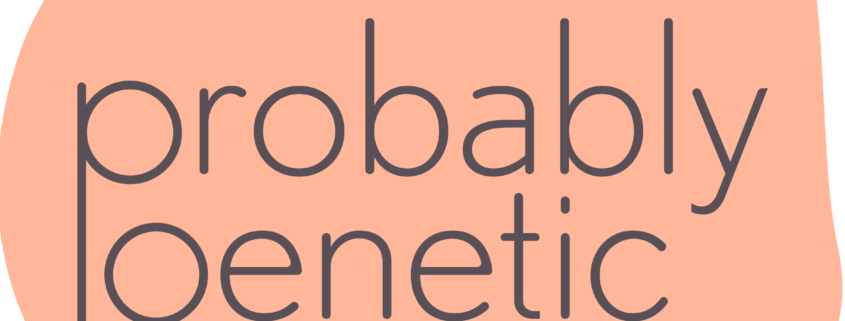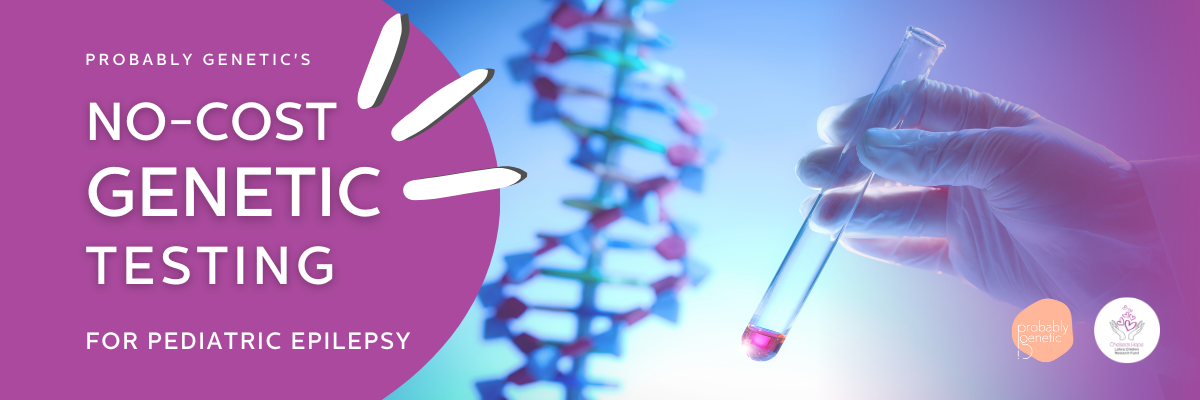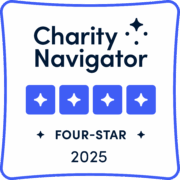Probably Genetic Program: FAQs
FAQs about Probably Genetic’s no-cost genetic testing program for pediatric epilepsy
Who is Probably Genetic?
Probably Genetic is a group of patients, geneticists, and engineers that seek to make genetic testing more accessible to rare disease patients. Their team partners with patient advocacy groups, such as Chelsea’s Hope, and biotech companies to launch no-cost genetic testing programs to end the diagnostic odyssey.
Probably Genetic allows caregivers of pediatric epilepsy patients to access a genetic testing option from the comfort of their homes. Their process eliminates the need to find the right specialist and is free of charge to the patient. Also, their approach empowers the individual and provides an easy way to get the answers you’ve been looking for.
What is Probably Genetic’s program?
Probably Genetic has launched a genetic testing program specifically for individuals experiencing seizure or developmental delay-related disorders. It was designed with a highly sensitive approach and was built in collaboration with communities of affected individuals and their care partners.
You will receive a saliva kit in the mail with a return label to send the equipment back or picked up from your home by USPS if you’re eligible. Once analyzed, all pathogenic, likely pathogenic, and variants of uncertain significance associated with the patient’s documented symptoms are reported, even if the mutations found aren’t related to a seizure disorder like Lafora disease. The entire process is free for families. We encourage caregivers to submit to the program for their loved one, too.
Please note: Testing is available only in the United States.
How do patients apply?
Complete a brief, patient and family-friendly online symptom checker to see if you’re eligible. Individuals who qualify for no-cost testing based on their submission are notified via email. Afterward, a testing kit is sent to their home address. The test only requires a saliva sample, which is returned to the lab using a prepaid shipping box for convenience. Our support team can also schedule a USPS pick-up time for you. We encourage caregivers to submit and collect samples for their loved ones.
What happens to the results?
Probably Genetic is the custodian of all patient data submitted through their programs, meaning they never share identifiable patient information with third parties without consent. They follow strict HIPAA guidelines and their entire testing pipeline is CLIA and CAP accredited. They completely de-identify any data or learnings from the program before sharing them with any third party, meaning that it is impossible to identify the source of the submission. You can access all your information via a unique patient portal, where you can also opt for your sequencing results to be given to your physicians. Results are only shared with physicians if patients explicitly request for this to happen.
Is this a clinical trial?
The no-cost testing program is not a clinical trial. Probably Genetic does not test therapies or interventions. They also do not conduct research. However, de-identified information generated by the programs can help advocacy groups and biotech companies better understand the patient experience for those living with rare and ultra-rare conditions. Examples include insights on the average wait for a diagnosis or the average symptom profile for a given condition. Families can further rare disease knowledge and potentially discover the cause of their loved one’s symptoms by participating in this program.
“Receiving a confirmed diagnosis has been an immense help and has altered the entire trajectory of my medical care. Everything we do at Probably Genetic is in the hope of offering that opportunity to someone else,” shared Cheyanne, Probably Genetic’s Community Manager and a rare disease patient herself.
How can I determine my child’s eligibility?
Complete the Probably Genetic Symptom Checker for Pediatric Seizure Conditions!
You can also refer to our announcement about our partnership with Probably Genetic. Also, you might find answers on their FAQs page.





